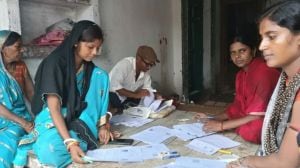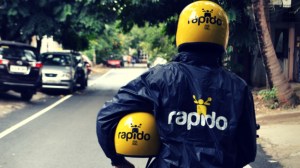Milking profit
Elena Medo envisions one day selling pasteurised human milk to children with cancer, heart conditions or AIDS. But for now, her company, Pro...

Elena Medo envisions one day selling pasteurised human milk to children with cancer, heart conditions or AIDS. But for now, her company, Prolacta Bioscience, is focused on providing human milk to the tiniest infants born prematurely in the US each year. Next month, Prolacta plans to begin processing milk donated by nursing mothers and selling it to hospitals with ICUs for newborns.
Backed by some Silicon Valley investors, Medo aims to make milk donation as natural as giving blood. Hospitals now use formula when mothers 8212; because of stress, illness or other factors 8212; cannot supply milk for their babies. Less frequently, hospitals tap nonprofit milk banks for donor milk when an infant can8217;t tolerate formula.
Medo wants to turn that low-key work into a booming business. It8217;s founded on her belief that human milk 8212; despite being sterilised and frozen for shipment 8212; is the next best thing to a mother8217;s own milk. But her business faces some challenges.
Among them is research by New York neonatologist Richard J. Schanler, who found that infants on donor milk in the first few weeks of life fared no better than babies on formula. His four-year study of 243 premature babies appeared this month in the journal Pediatrics. Schanler concluded that valuable substances that protect infants from infection were destroyed when human milk was pasteurised.
But Medo, 52, is optimistic. At her Monrovia factory in California, she showed off two stainless steel tanks, similar to those found in dairy plants. The equipment can process enough milk in a year to feed 100,000 hospitalised infants for two months. Medo plans to produce two breast milk formulations: regular, and high fat for babies who need extra calories. Her products will be packaged in syringes 8212; premature infants are tube-fed 8212; and will come with nutrition labels.
Some academics, including Ruth Lawrence of the University of Rochester in New York, applaud Medo8217;s efforts. Her university8217;s Strong Medical Center is lined up to become Prolacta8217;s first customer.
As a for-profit venture, Prolacta is causing a stir. The company has received a cold reception from the nine nonprofit milk banks in the US. Laraine Borman, director of a nonprofit milk bank in Denver, said Prolacta was poaching on her turf and trying to steal her customers.
Some said they were worried that commercialisation could lead some mothers to sell their milk. 8216;8216;I8217;m very concerned about mothers not giving their babies the benefit of their own milk,8217;8217; said Nancy Wight, a San Diego neonatologist.
Medo said she was eager to work with the nonprofits. She insisted that Prolacta would not purchase milk from mothers. But Prolacta is compensating hospitals an undisclosed amount for the donated milk they collect. Its business plan calls for establishing human milk depots at hospitals.
LAT-WP
- 01
- 02
- 03
- 04
- 05






























